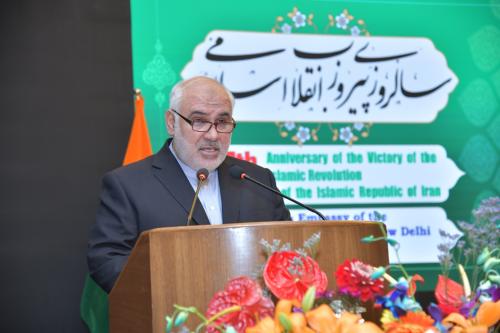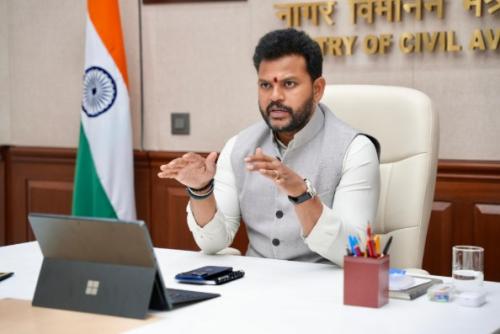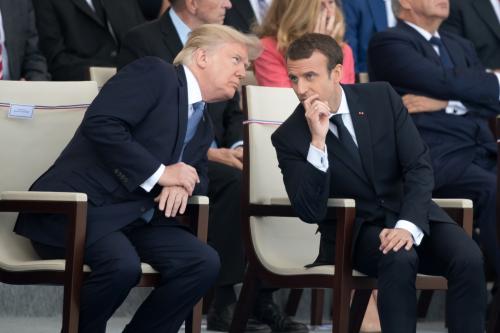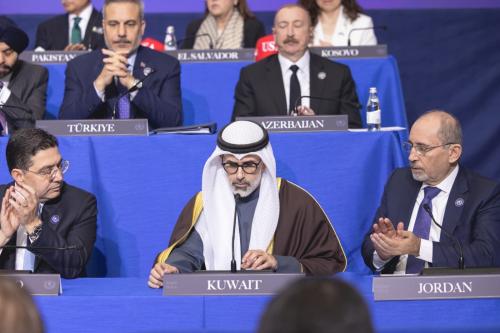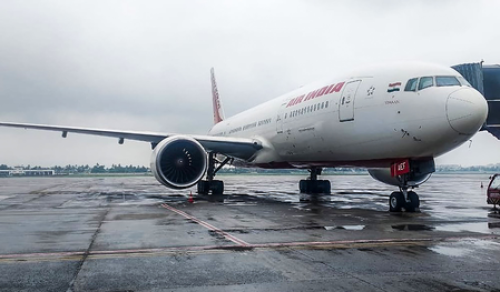By Shivaji Sengupta Like most things, politics is culture bound. By this I mean that every group, from a small club to great countries like America and India, are defined by their culture and politics. Culture, to me, is the conscious and subconscious beliefs people have and, exhibit hem both privately and publicly. Politics, as I have often said, is people’s intentions and behavior in public. Thus, culture defines polity. The war in Ukraine has brought forth the culture of the people involved, directly or indirectly. Americans not only support Ukraine and the Ukrainians, and some would want their country to join the war in support of Ukraine; nay, even personally and actively engage in it if they could! But President Biden knows that if American troops are sent to fight in the war, Putin would declare war on America. Everyone knows what would happen if that were to happen! Not being able to do so, the U.S. is sending all sorts of sophisticated weapons to that country. The Indian government’s approach, on the other hand is of well-polished wait-and-see. It is pragmatic, businesslike, and artificially neutral. Artificial because could have easily been with America had the Americans historically backed the right horse that is India, and not Pakistan. But they didn’t. Now that India has far outpaced Pakistan in economic progress and infrastructure, the Americans are anxious to forge a strong relationship with India. India, however, are now almost a superpower in terms of economic development and military strength – its GDP is fifth or sixth in the world depending on whose statistics you consult. Pakistan, by contrast, is struggling with being solvent – never mind progress. Faced with India’s culture of politics, Americans find it hard to understand why they are, to quote Fareed Zakaria, “sitting on the fence” in terms of the Ukraine war. To Americans, Ukraine is a world-wide event, affecting just about every country. To Indians, Ukraine is just another war, not unlike the Soviet invasion of Afghanistan, and America’s many wars. It is simply not as important as Americans claim. The government of India is not sitting on the fence over Ukraine. It is serving its own interest by maintaining relationships with Russia, from whom India receives a larger bulk of weapons than from anywhere else. Historically, the Soviet Union-Russia has backed India in its conflicts with other countries like Pakistan and China. Not so, America. Thus, with the outbreak of the Ukrainian war, India had little difficulty in not condemning Russia along with thirty-one other countries. Notably, those who abstained from condemning Russia in the United Nations, are almost all of them from Asia and Africa. These countries depend upon Russia for economic, and infrastructure help as well as weapons. While culturally India and Russia have little in common, their political culture has historically been to support each other in time of crisis. America’s expectation that India side with them over Ukraine was far-fetched, and wrong. Ukraine was just the tinder waiting to set off the fire that has been threatening the world for quite some time. Russia has been carping for the last twenty years or more that N.A.T.O.is trying to expand to its very borders. Where would Russia be, Putin asks rhetorically, if N.A.T.O. warheads are amassed right along Russia’s border? Instead of engaging Putin then in terms of allaying his fears the West did nothing. It's ow important to take stock of what has been happening internationally since the U.S. led Iraq Wars of 1990 and 2001. The brief history may further clarify American involvement in the war in Ukraine. Along with the Russians, their approach could be the tinder box that might start off a dangerous all-ending nuclear war. What's been happening throughout the 1990swas nothing. And therein lies the problem. Scholars like Richard Haass blames the US of that time, under presidents Bush senior and Bill Clinton for being content with its status as the only superpower in the world. They didn't push Iran far enough to give up its quest for the bomb; wasn't able to deter North Korea from continuing its building of atomic weapons. Meanwhile, there was a status quo with the newly formed Russian Federation, which was in the process of building back better. I use that phrase from President Joe Biden ironically, because Russia seems to have built back to its old superpower status quietly, surreptitiously. Dr. Condoleezza Rice, a member of Bush senior’s cabinet, describes Vladimir Putin, then serving in Boris Yeltsin’s government, as a callow, sheepish Russian diplomat who kept a low profile. I submit that that was Vladimir Putin’s purposeful ploy. It was also Russia’s: keep your head down and work hard to restore Russia to the power and glory of the Soviet days. It is back, challenging America’s unipolar status. Putin has surprised America. For almost a quarter of a century, they have been thinking that all Russia was interested in was vigorous trade with the west. If Russia and the Russians prospered economically, all would be well. That was George Bush and Bill Clinton’s thinking, as Professor Haass sees it. And not just those two presidents. George Bush junior was known as the Afghan War president, busy throughout his two terms fending of jihadis, forming unhealthy financial relationship with Pakistan. Russia was not a problem during his time, thanks to the treaty that still held good which Presidents Reagan and Gorbachev had signed. By Barak Obama’s presidency, however, the Russian juggernaut had started raising its head. Putin backed, and still backs, the Syrian dictator, Bashar al-Aasad, and was being viewed with respect and awe by the entire Middle East and Israel. Despite all this, the American presidents did practically nothing to contain Putin, right up to Obama and Donald Trump. This is Richard Haass’ criticism of the U.S. presidents. And not only Russia. China has used the lull to become a free market communist state with a massive atomic arsenal. India and Pakistan also became nuclear powers, with Iran and North Korea knocking at the door. Indeed, according to reliable sources, North Korea already has nuclear bombs. It's the delivery system they are working on. So much on the international scene in terms of power relations. In this mix, it is Russia since Ukraine that has made the most significant impact. Dr. Haass compares the U.S. attack on Iraq with the Russian invasion of Ukraine. Both invaded smaller countries. In both cases the stronger, more powerful country - Iraq and Russia - were blamed and ostracized for having attacked the sovereignty of an independent nation, thus challenging the international world order. Sanctions were levied. However, there was one major difference between the two events. Iraq was no Russia! It was not a member of the Security Council. In short, Iraq did not count as Russia does today being both a nuclear power of massive proportions (according to some studies, even more powerful than the U.S.), and a member of the Security Council. Therefore, politically whatever move any country makes against Russia, Russia can veto it in the Security Council. Militarily, it has the capacity of blowing up the entire world many times over. It is imperative that countries like India, the United States and others make a joint effort to avert such an apocalypse as a World War III which might as well be called the Last War! So, during the press conference featuring the two leaders, Dr. S. Jaishankar and Mr. Anthony Blinken, Russia was the elephant in the room. What I observed between them is a very cautious skirting around the issue of support, or the lack of it, for Russia. Tony Blinken, the U.S. Secretary of State made it abundantly clear that America would appreciate some criticism – any criticism - from India regarding Russia. Twice in the press conference he invoked Narendra Modi’s cryptic comment to Putin, “This is not an era of war.” Once he said, “If Putin stops the war, the war ends. If Ukraine stops the war, Ukraine ends.” Dr. Jaishankar, on his part, was diplomatic. When questioned whether India had been approached by Russia or other countries to help stop the war, he replied, “India has always…. advocated peace over war, and this time it is no different.” Many countries have talked about bringing peace to the western frontier, he said, and, yes, “India has been approached.” But pointedly, he gave nothing away. He did not mention any country or person, but gave the clear impression, to meat least, that behind the scene India is trying to bring about peace. Interestingly, what ever Tony Blinken said about efforts to rein in Russia leads to isolating that country from the rest of the world. By contrast, what ever Dr. Jaishankar said addressed bringing peace to Europe. Clearly, India is not in favor of isolating or punishing Russia. India wants peace and status quo – that is what Jaishankar’s position seemed to be. Blinken was immensely optimistic about India-U.S. relationship and Jaishankar concurred. Blinken was not that optimistic about Russia; Dr. Jaishankar demurred. That, in a nutshell, sums up their approach to the war in Ukraine.
The Culture of Politics: India and the U.S. Since the Ukraine War
- by Rinku
- October 16, 2022 2 minutes

Russia and Ukraine crisis Pictures.(photo:Twitter)





